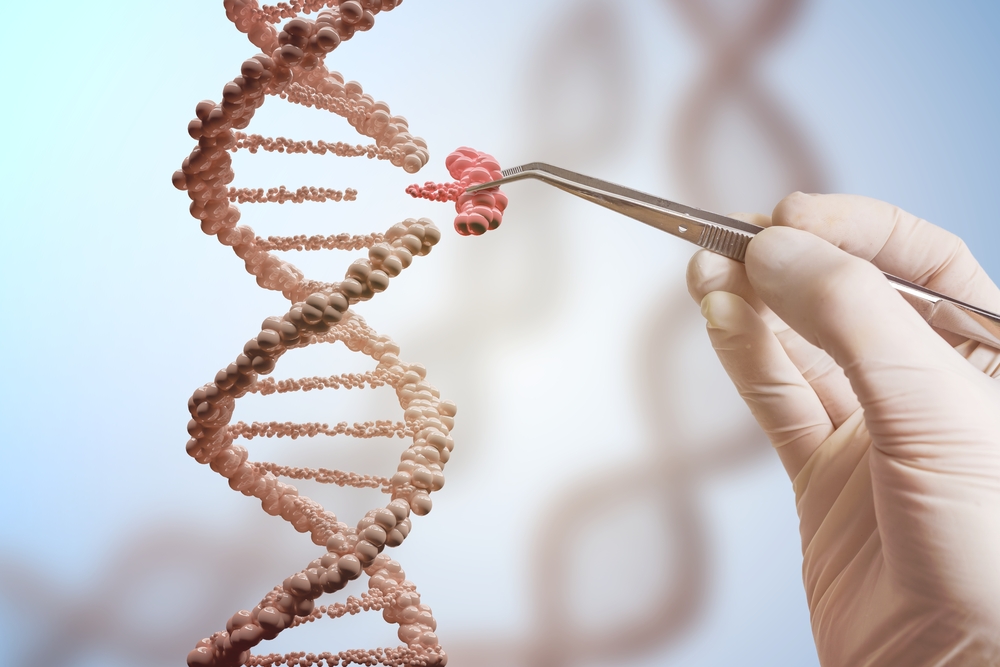Microdystrophin Gene Therapy Shows Promising Interim Results in Phase 1/2 Trial
Written by |

Microdystrophin gene therapy robustly induces the production of a shorter, but functional, version of the dystrophin protein and reduces muscle damage in Duchenne muscular dystrophy (DMD) patients, according to preliminary results of a Phase 1/2 clinical trial.
DMD is a severe type of muscular dystrophy caused by mutations in the dystrophin gene. This leads to the absence of the dystrophin protein, a critical protein involved in the stability and function of muscle fibers. Without the protein, there is progressive muscle degeneration and weakness.
Researchers have been working to develop gene therapies to replace the dystrophin gene, with the goal of protecting the muscle from damage and/or promoting muscle repair.
Among these developing therapies, AAVrh74.MHCK7.micro-Dystrophin — developed by a team at Nationwide Children’s Hospital and licensed by Sarepta Therapeutics — is one of the most advanced.
This therapy uses a virus (the adeno-associated virus, or AAV) to deliver microdystrophin, a shorter version of the dystrophin gene, that contains the minimum amount of information needed to produce a functional dystrophin protein.
It also directs the delivery of the microdystrophin gene specifically to muscle tissue (while avoiding other tissues), in particular the heart muscle, which is crucial for DMD patients, who frequently die from heart disease.
Want to learn more about the latest research in Muscular Dystrophy? Ask your questions in our research forum.
Preclinical studies have shown the therapy induced high levels of microdystrophin protein and restored its levels in skeletal, diaphragm (a major respiratory muscle), and heart muscles.
The safety and effectiveness of a single dose of intravenous (directly into a vein) microdystrophin gene therapy is being evaluated in boys with DMD in an ongoing Phase 1/2 clinical trial (NCT03375164), which is still recruiting participants.
Twelve boys with DMD — divided equally into two groups — are expected to be enrolled. One group will have infants and toddlers 3 months to 3 years of age, and the second group’s children will be 4 to 7 years old.
To assess whether the therapy has successfully replaced the missing dystrophin protein, a muscle biopsy will be collected before and three months after treatment. The trial will run for about three years, but researchers expect to have a good idea of whether the therapy works by four months after treatment.
Sarepta recently announced interim results from the first three boys aged 4-7 years who received the gene therapy.
Three months after treatment, all three patients showed a robust microdystrophin gene expression in muscle tissue, which was 76.2%. This confirmed the therapy successfully introduced the microdystrophin gene in the patients’ muscles.
Compared to dystrophin protein levels in healthy patients, the mean levels of microdystrophin protein were of 38.2% when assessed by Sarepta’s method, or 53.7% when measured with a method developed at Nationwide Children’s Hospital that considers fat and scar tissue to adjust the results.
Two months after treatment, all patients showed a significant decrease — more than 87% — in the levels of creatine kinase (CK), an enzyme used as a biomarker for muscle damage. This result suggests that the amount of microdystrophin being produced is effectively protecting the muscle.
No serious adverse events have been reported. Two patients began to show signs of liver damage, but it was resolved within a week through appropriate treatment.
“Although the data are early and preliminary, these results, if they persist and are confirmed in additional patients, will represent an unprecedented advancement in the treatment of DMD,” Jerry Mendell, one of the trial’s principal investigators, said in a press release.
“I look forward to treating more patients in the clinical study to generate the data necessary to bring this therapy to patients with DMD, with the goal of dramatically changing the course of the disease,” Mendell said.
Two other clinical trials evaluating the therapeutic effects of gene therapy using microdystrophin (NCT03368742) or minidystrophin (NCT03362502) (a larger version compared with microdystrophin) also are recruiting patients.





